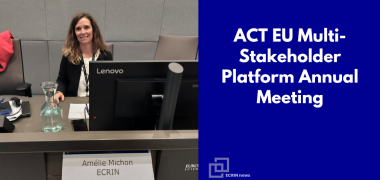ICTD 2023: Decentralised Clinical Trials - Challenges and Opportunities
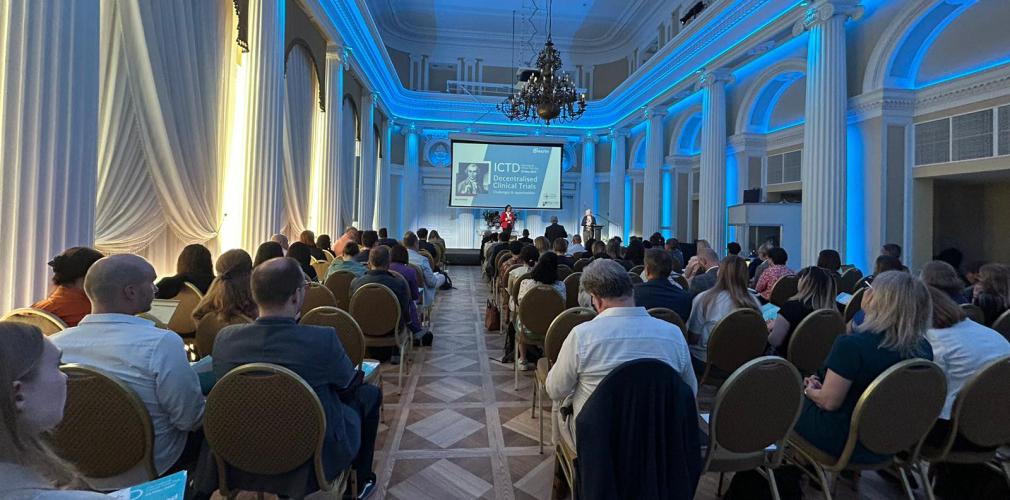
ICTD 2023: Decentralised Clinical Trials - Challenges and Opportunities
ECRIN, together with our Polish national partner, PolCRIN, represented by the Polish Medical Research Agency, organised International Clinical Trial Day (ICTD) 2023 in Warsaw, Poland. ICTD 2023 was a hybrid event focusing on Decentralised Clinical Trials: Challenges and Opportunities. It was held in the Hotel Bellotto in the heart of Warsaw, and was also broadcast online. It brought together 700 stakeholders from the international clinical research community, from across Europe and the globe, with registered participants representing over 50 different nations and all continents.
Decentralised clinical trials are a hot topic at the moment, in the wake of the COVID19 trial where classical trial modalities were not necessarily possible, where regulators made exceptional allowances, and where funding was available, this trial modality got the added boost needed to be launched to the forefront. As a result, it was without hesitation that we proposed the exciting line up of speakers to enable an open discussion from the different stakeholders in the clinical research community.
Some of the overarching conclusions of the day include:
- Clear communication with all stakeholders is crucial. This includes with the patients but also all those new stakeholder that will be engaged with trial from logistics through to data.
- The use of technology can facilitate the implementation of the decentralised clinical trial, from electronic consent to devices that feedback data directly or online questionnaires forms, but the selection of these tools must be made carefully and requires support from all stakeholders from beginning to end.
Agenda ICTD 2023
The 2023 edition of ICTD was brilliantly hosted by Vivienne Perry. Throughout the day she accompanied the audience through the exciting agenda, below.
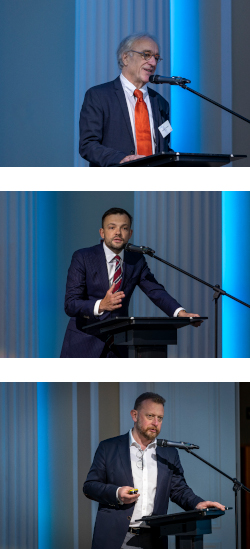 Welcome to ICTD 2023
Welcome to ICTD 2023
Jacques Demotes
Director General, ECRIN
Radostaw Sierpinski
President, Medical Research Agency
ICTD 2023 was officially opened by ECRIN’s Director General, Jacques Demotes, and the Polish representative Radostaw Sierpinski, who welcomed the attendees and handed over the floor to Lukasz Szumowski. The Director of the National Institute of Cardiology and Member of the ECRIN Network Committee then shined a light on the Polish clinical trial community.
Multistakeholder Perspective
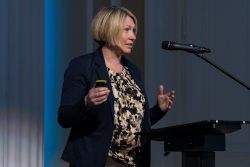
EU Recommendations on Decentralised Elements in Clinical Trials
Ditte Zerlang Andersen, PhD
EU Project Manager, Special Advisor-Danish Medicines Agency
Ditte Zerland Andersen explained that as they worked to develop the recommendations they were aware that they would not be able to harmonise them due to differences in national legislation. She explains how they worked to harvest the new opportunities that DCTs provide and that maintaining the clinical trial oversite remains the biggest challenge that regulators need to address.
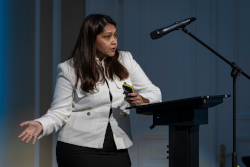 Decentralised Clinical Trials - Industry Perspective
Decentralised Clinical Trials - Industry Perspective
Ekata Shah
Global Study Associate Director, AstraZeneca Pharma Poland
Ekata Shaw discussed for the industry what it can represent to be a sponsor of a DCT and what the implications and considerations necessary to choose between a full vs hybrid DCT. She highlighted the importance of having the capacity to run such trials (both human resources and finances). She went on to explain that the decentralised elements are about giving patients choices and not about adding complicated elements.
 Decentralised Clinical Trials - a Patient Perspective
Decentralised Clinical Trials - a Patient Perspective
Robert Joyce
EUPATI Fellow
Robert Joyce joined us online to share his experience as a patient expert highlighting elements that are essential for encouraging patient recruitment and retention. These included aspects related to the link between the regular health care team and the study team, facilitation of access to such trials through the support of local GP practices, having patient experts involved as a research team member to better relay messages to a patient community and much more. From his perspective, despite some drawbacks, DCTs should enable better patient recruitment if they are set up with the patient in mind.
Keynote Lecture

The Trials at Home project: What have we learned about decentralised clinical trials in Europe?
Rachel Copland, Research Fellow
University of Dundee
Rachel Copland led us through the work carried out by the Trials@Home project, including a systematic review conducted within the project and a group of identified case studies. While the concept has been around for longer than we think, Europe is lagging behind the US. In the analysis, different DCT methods and themes were identified: "We want to look at the convenience of at-home participation but it must be balanced against transferring burden to the study participants". Through the use cases she highlighted the importance of trust through continuous patient engagement, choice to select among different technologies that may be best adapted to the participant, considerations for the changes brought about by these new methodologies, and full stakeholder participation from the start.
Operational and Technological Approaches
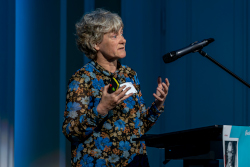
e-Consent: not a one size fits all
Hilde Vanaken, PhD, Eng, MsC
Head of EFCP Consent Initiative
Hilde Vanaken clearly explained what econsent is, the many different ways it can be carried out and how it is of value to different stakeholders. The system needs to be flexible & interoperable to support different situations. She then goes on to explain the EFGCP Multistakeholder eConsent Initiative that is developing practical guidelines on econsent as well as database that lists local acceptance of eConsent.
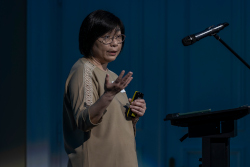 Taking part in trials without leaving your own bed: experience from PRINCIPLE and PANORAMIC
Taking part in trials without leaving your own bed: experience from PRINCIPLE and PANORAMIC
Ly-Mee Yu, DPhil
Deputy Director Academic and Head of Statistics, Trials Unit Oxford
COVID19 brought the primary care trial team at Oxford to develop a trial with a unique problem which was that participants were unable to travel to their GP practice. To support recruitment they quickly learned the traditional practice was not sufficient or adapted to the circumstances. The adaptation brought with it other difficulties that needed to be overcome. Among the key findings was the need to maintain the human element, which was carried out primarily through calls by the study nurse team. The PANORAMIC trial followed and the team responded by adapting again from what was learned in PRINCIPLE.
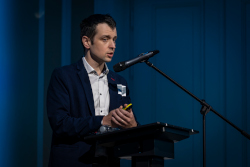 Using decentralized elements in a pediatric trial
Using decentralized elements in a pediatric trial
Jaroslaw Meyer-Szary, MD, PhD, Assistant professor
Department of Pediatric Cardiology and Congenital Heart Diseases, Medical University of Gdansk
After an overview of issues related to paediatric trials and the benefits of DCTs as well as the current overlap, Jaroslaw Meyer-Szary presented MeDMD which looked to identify means of heart failure prevention in patients with Duchenne muscular dystrophy. This trial integrated different elements of decentralisation from recruitment including visibility of the trial, through to an electronic pre-screening process, and patient reported outcomes. Other elements were mobilised only when absolutely necessary including parental econsent and drug delivery. In short, he explains it is feasible and helpful to include DCT elements into a trial but these are not without their limitations (legal, technical & practical).
Panel session & Conclusion
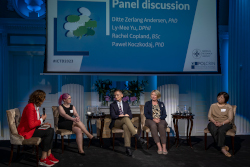
Future of patient participation: conventional, hybrid, fully decentralized?
Rachel Copland, Ditte Zerlang Anderson, Ly-Mee Yu, Rafal Staszewski
The panel addressed a variety of hot topics on the organisation and participation of decentralised clinical trials. A few key ideas include:
-Participants must be the focus of the research and PPI must be taken into consideration from the start
-Education with all stakeholders is necessary
-Clear communication is essential
-The regulators are working to support DCTs but the current landscape needs greater harmonisation
-Efficient and safe use of patient data is essential for all elements of the DCT
Closing remarks
 Jacques Demotes
Jacques Demotes
Director General, ECRIN
ECRIN's Director General, wrapped up the meeting, covering some of the key information provided by the speakers and sharing key questions that remain to be answered. Also, he officially announced that Greece has joined ECRIN as Member country, and that it will be hosting ICTD 2024 in Thessaloniki. Watch the replay.
ICTD 2023 wrap up video
About International Clinical Trial Days
In 2005, ECRIN launched International Clinical Trials Day by ECRIN to commemorate the day when James Lind started his famous clinical trial on scurvy in 1747, May 20th, and laid the foundation for modern clinical research. Celebrated every year on or around May 20th, ICTD is an opportunity for research organisations, clinical research professionals, and the public to acknowledge the achievements that result from clinical research and to discuss various trial topics.
ECRIN’s annual celebration of ICTD brings together European and international stakeholders. Given its success, the conference has been replicated by some of ECRIN’s member/observer countries, who have now introduced their own national/international ICTD celebrations.



